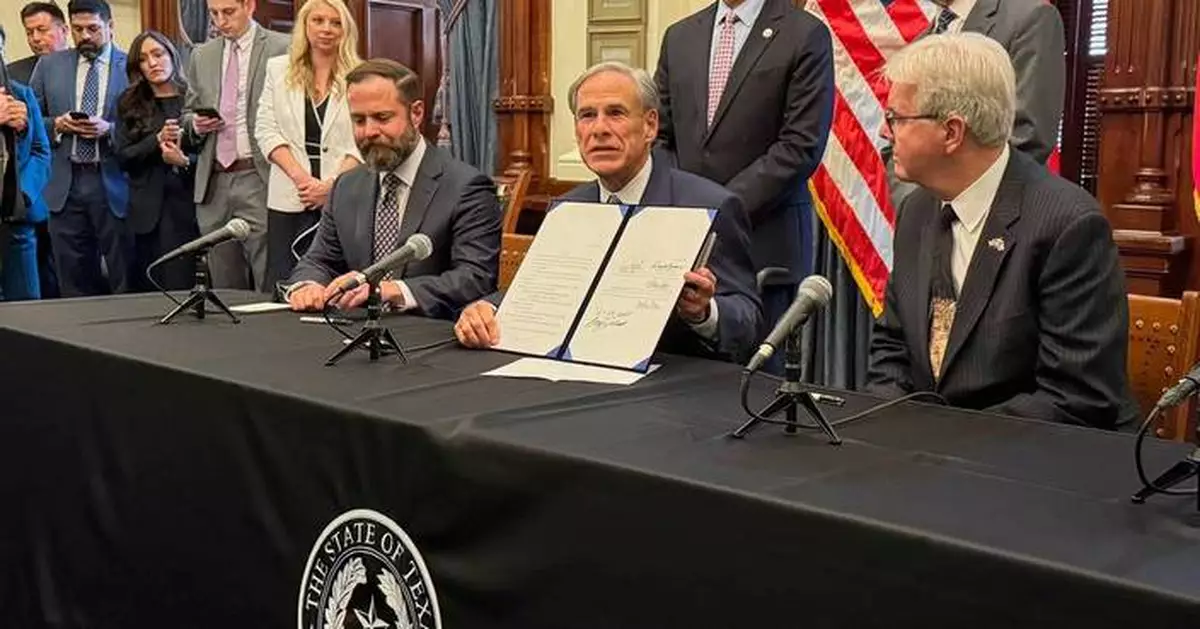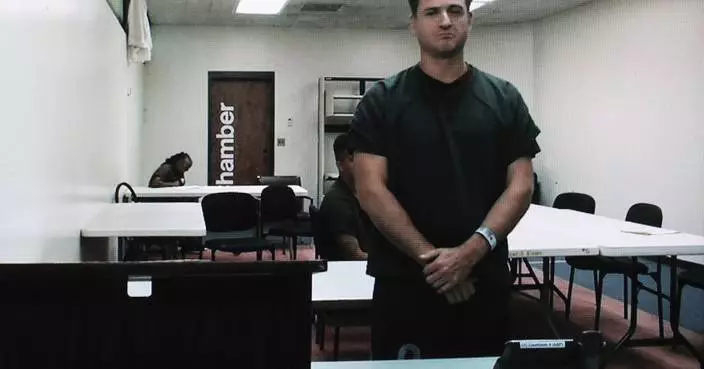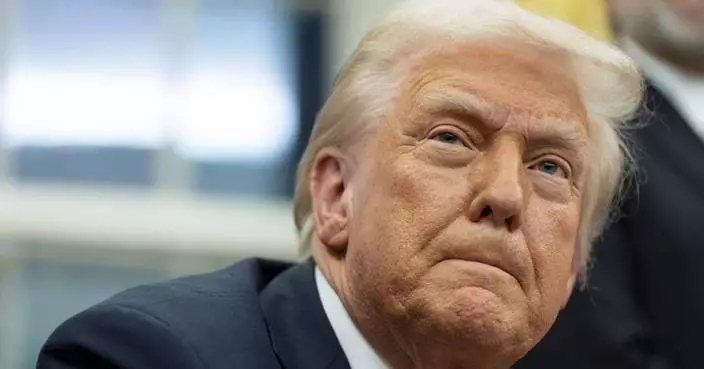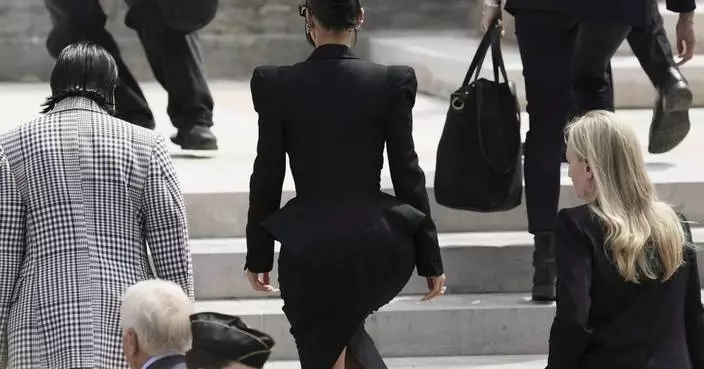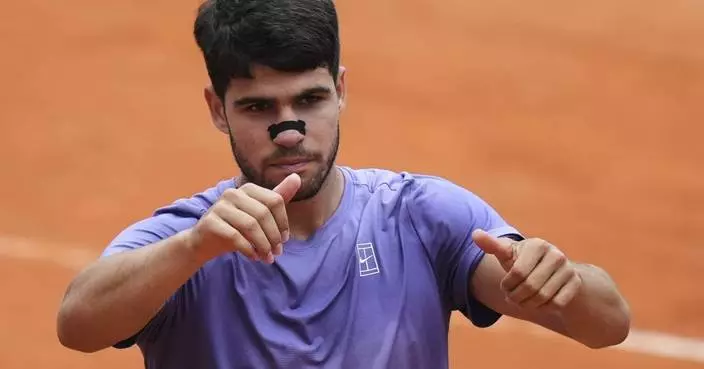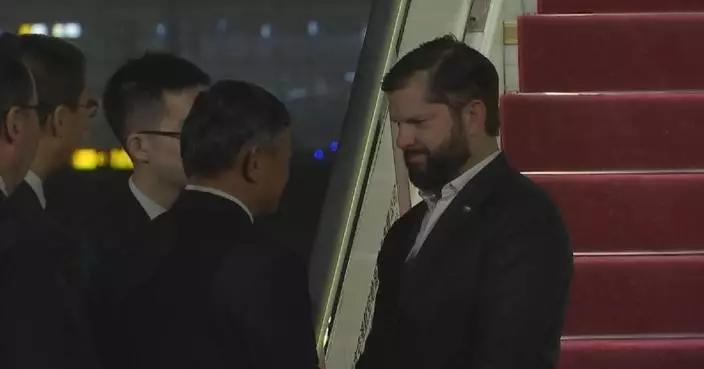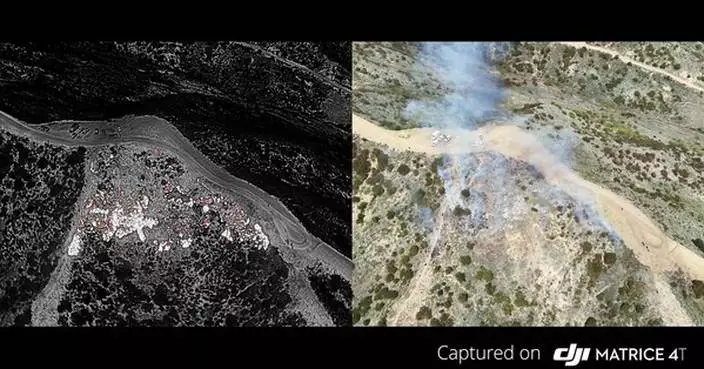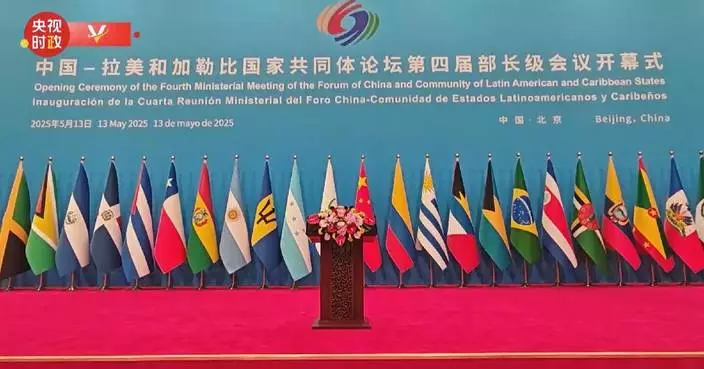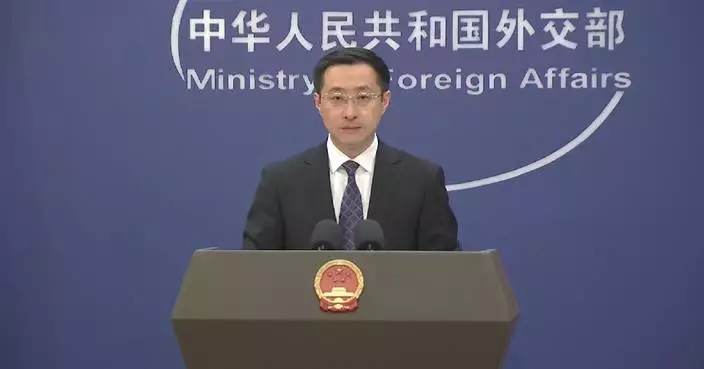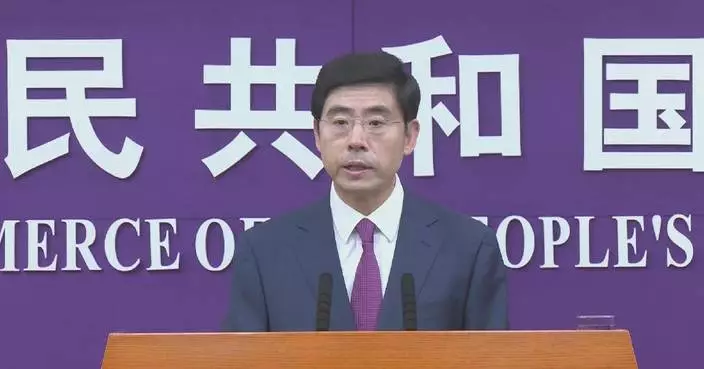AUSTIN, Texas (AP) — Texas Gov. Greg Abbott signed a bill Wednesday creating an office inspired by the Department of Government Efficiency and aimed at reducing state regulations, joining other Republican governors who have pledged their own versions of billionaire Elon Musk's cost-cutting group.
In establishing the Texas Regulatory Efficiency Office, Abbott welcomed cutting regulations and putting stricter standards on new ones. He made no mention during a ceremonial bill signing at the state Capitol of intentions to slash jobs like DOGE, which has divided the country.
“The regulatory environment in Texas is getting too burdensome,” said Abbott, who made the bill the first he has signed this year. “It will put a check on the growth of the administrative state in Texas."
The law also states that courts are not required to comply with a state agency’s interpretation of its rules or regulations in legal challenges.
More than 20 states have initiated DOGE-style efforts to varying degrees. Most have done so by introducing legislation to create DOGE offices or have created their own legislative committees. Some, such as Texas, have done both; in January, Texas House lawmakers created a DOGE legislative committee, which has primarily worked to audit and modernize dated technology in state agencies.
The governors of Montana, Oklahoma, Iowa, New Hampshire, Florida and Louisiana have issued executive orders to create state DOGE departments.
In Texas, leaders of the state's employee union dismissed the bill as adding a layer of bureaucracy instead of eliminating one.
“The definition of ‘efficiency’ is being stretched beyond recognition,” Myko Gedutis, vice president of the Texas State Employees Union, said in a statement.
Abbott’s signing comes days after protests popped up across the country in opposition to Musk and the thousands of job cuts DOGE has initiated across the federal government. The measures have set off multiple court challenges and come under criticism for cutting essential services.
In Wisconsin, Republican Assembly Speaker Robin Vos, who created a bipartisan DOGE committee, has said its purpose is to rid of government fraud and waste. Texas lawmakers’ focus — whose committee holds eight Republicans and five Democrats — has been to audit state agencies.
More than 10 states, including Georgia, Connecticut and Arizona, have only introduced bills on the matter. The “Red Tape Rollback Act of 2025” in Georgia would require state agencies to review the economic impact of their rules and regulations.
Lathan is a corps member for the Associated Press/Report for America Statehouse News Initiative. Report for America is a nonprofit national service program that places journalists in local newsrooms to report on undercovered issues.
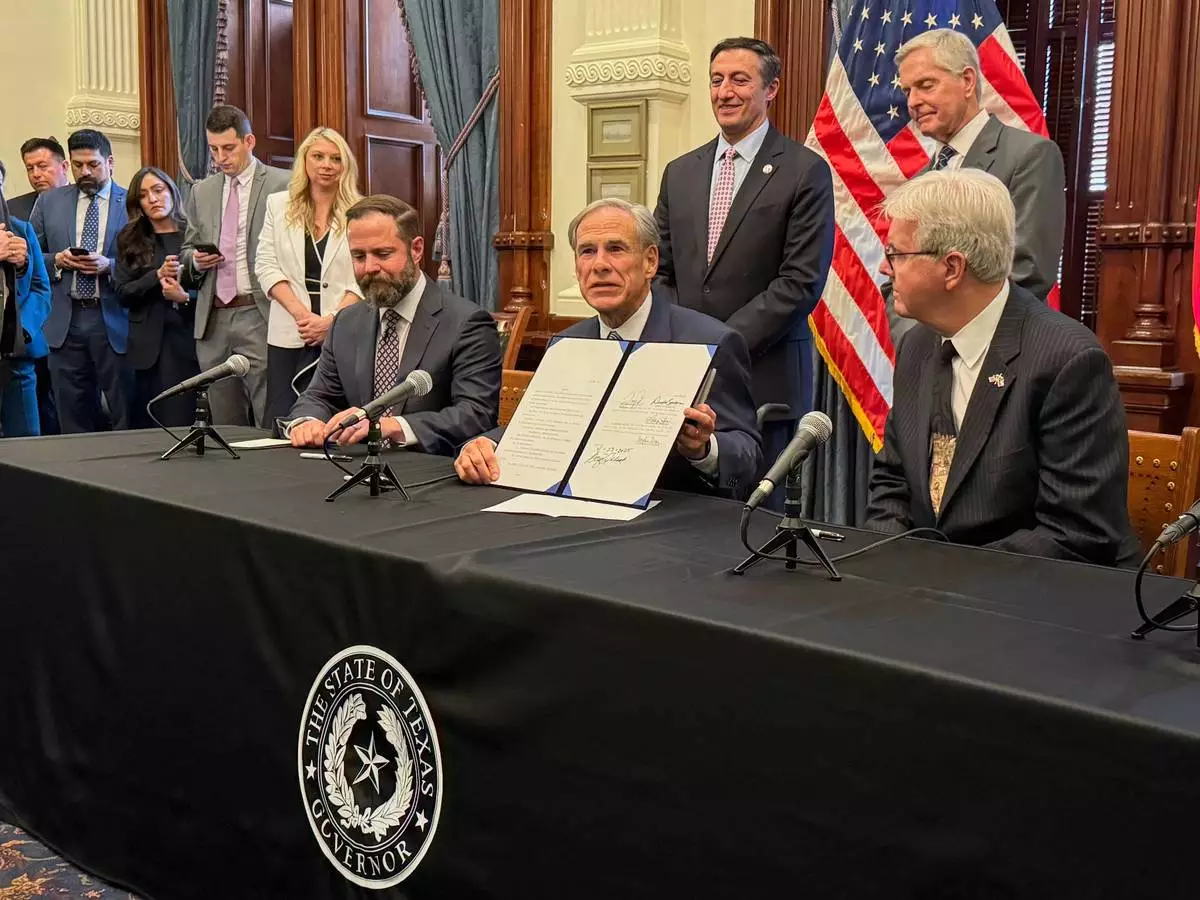
Texas Gov. Greg Abbott, center, holds a newly signed bill creating the Texas Regulatory Efficiency Office during a ceremony inside the state Capitol on Wednesday, April 23, 2025, in Austin, Texas. (AP Photo/Nadia Lathan)
MONTEVIDEO, Uruguay (AP) — Former Uruguayan President José Mujica, a onetime Marxist guerilla and flower farmer whose radical brand of democracy, plain-spoken philosophy and simple lifestyle fascinated people around the world, has died. He was 89.
Uruguay's left-wing president, Yamandú Orsi, announced his death, which came four months after Mujica decided to forgo further medical treatment for esophageal cancer and enter hospice care at his three-room ranch house on the outskirts of Montevideo, Uruguay’s capital.
“President, activist, guide and leader,” Orsi wrote of his longtime political mentor before heading to Mujica's home to pay his respects. “Thank you for everything you gave us.”
Mujica had been under treatment for cancer of the esophagus since his diagnosis last spring. Radiation eliminated much of the tumor but soon Mujica’s autoimmune disease complicated his recovery.
In January, Mujica’s doctor announced that the cancer in his esophagus had returned and spread to his liver. In recent days, “he knew that he was in his final hours,” said Fernando Pereira, the president of Mujica's left-wing Broad Front party who visited the ailing ex-leader last week.
As leader of a violent leftist guerrilla group in the 1960s known as the Tupamaros, Mujica robbed banks, planted bombs and abducted businessmen and politicians on Montevideo’s streets in hopes of provoking a popular uprising that would lead to a Cuban-style socialist Uruguay.
A brutal counterinsurgency and ensuing right-wing military dictatorship that ruled Uruguay between 1973 and 1985 sent him to prison for nearly 15 years, 10 of which he spent in solitary confinement.
During his 2010-2015 presidency, Mujica, widely known as “Pepe,” oversaw the transformation of his small South American nation into one of the world’s healthiest and most socially liberal democracies. He earned admiration at home and cult status abroad for legalizing marijuana and same-sex marriage, enacting the region’s first sweeping abortion rights law and establishing Uruguay as a leader in alternative energy.
Rejecting the pomp and circumstance of the presidency, he drove a light blue beat-up 1987 Volkswagen Beetle, wore rumpled cardigan sweaters and sandals with socks and lived in a tin-roof house outside Montevideo, where for decades he tended to chrysanthemums for sale in local markets.
“This is the tragedy of life, on the one hand it’s beautiful, but it ends,” Mujica told The Associated Press in a wide-ranging Oct. 2023 interview from his farmhouse. “Therefore, paradise is here. As is hell.”
As the Uruguayan government declared three days of national mourning, tributes poured in from presidents and ordinary people around the world. The first to share remembrances were allied leaders who recalled not only Mujica's accomplishments but also his hallowed status as one of the last surviving lions of the now-receding Latin American left that peaked two decades ago.
Colombian President Gustavo Petro praised Mujica as a “great revolutionary." Bolivia’s former socialist president, Evo Morales said that he “and all of Latin America" are in mourning. Mexican President Claudia Sheinbaum called Mujica “an example for Latin America and the entire world.” Brazil's Foreign Ministry described him as “one of the most important humanists of our time.”
Chile's leftist President Gabriel Boric paid tribute to Mujica's efforts to combat social inequality.
“If you left us anything, it was the unquenchable hope that things can be done better,” he wrote. “The unwavering conviction that as long as our hearts beat and there is injustice in the world, it’s worth continuing to fight.”
Mujica never attended university and didn’t finish high school. But politics piqued his interest as early as adolescence, when the young flower farmer joined the progressive wing of the conservative National Party, one of the two main parties in Uruguay. His pivot to urban guerrilla warfare came in the 1960s, as leftist struggles swept the region in the wake of the Cuban Revolution.
He and other student and labor radicals launched the Tupamaros National Liberation Movement, which quickly gained notoriety for its Robin Hood-style exploits aimed at installing a revolutionary government.
By 1970 the government cracked down, and the Tupamaros responded with violence, planting bombs in upscale neighborhoods and attacking casinos and other civilian targets, killing more than 30 people.
Mujica was shot six times in a firefight with police in a bar. He helped stage a prison break and twice escaped custody. But in 1973 the military seized power, unleashing a reign of terror upon the population that resulted in the forced disappearance of some 200 Uruguayans and the imprisonment of thousands.
During his time in prison, he endured torture and long stretches in solitary confinement, often in a hole in the ground.
After power returned to civilians in 1985, Mujica left prison under an amnesty that covered the crimes of the dictators and their guerrilla opponents. He entered mainstream politics with the Broad Front, a coalition of radical leftists and centrist social democrats.
Rapidly rising through the party ranks, Mujica charmed the country with his low-key way of living and penchant for speaking his mind. In 2005 he entered government with the Broad Front as an agricultural minister. Just four years later he was Uruguay’s 40th president, elected with 52% of the vote.
His wife, Lucía Topolansky, a former co-revolutionary guerrilla member who was also imprisoned before becoming a prominent politician, bestowed the presidential sash on Mujica at his inauguration — as is custom for the senator who had received the most votes. They married in 2005 and had no children.
“I’ve been with him for over 40 years, and I’ll be with him until the end,” she told a local radio station Sunday as Mujica's condition deteriorated.
Pepe’s bracingly modest and spontaneous style as president — distributing pamphlets in the streets against machismo culture, lunching in Montevideo bars — made him a populist folk hero and token of global fascination.
“They made me seem like some impoverished president, but they were the poor ones ... imagine if you have to live in that four-story government house just to have tea,” he told the AP of his decision to shun the presidential palace.
Over his years in power, Mujica presided over comfortable economic growth, rising wages and falling poverty. In speeches, he pushed Uruguayans to reject consumerism and embrace their nation’s tradition of simplicity.
Under his watch, the small nation became known worldwide for the strength of its institutions and the civility of its politics — rare features most recently on display during Uruguay’s 2024 presidential vote that vaulted Orsi, Mujica’s moderate protégé, to power.
Mujica's greatest innovations came on social issues. During his term, Uruguay became the first country in South America to legalize abortion for the first trimester and the first in the world to legalize the production, distribution and sale of marijuana. His government also legalized same-sex marriage, burnishing Uruguay’s progressive image in the predominantly Catholic region.
Mujica’s government also powered a green energy revolution that transformed Uruguay into one of the world’s most environmentally friendly nations. Today the country generates 98% of its electricity from biomass, solar and wind energy.
His tenure was also not without controversy. The opposition complained of rising crime and a swollen fiscal deficit that forced his successor to raise taxes.
Some world leaders disapproved of his disdain for the established order. Conservative Uruguayans voiced outrage over his progressive policies.
Still, Mujica ended his tenure with a 60% approval rating. Ineligible to seek re-election because of a ban on consecutive terms, he continued to wield influence at home as an elected senator and abroad as a trailblazer and sage.
Even so, his humility defined him until the end.
“They ask you: ‘How do you want to be remembered?’ Vanity of vanities!” he exclaimed to the AP. “Memory is a historical thing. ... Years go by. Not even the dust remains.”
DeBre reported from Buenos Aires, Argentina. Associated Press writers Leonardo Haberkorn in Montevideo, Uruguay, and Nayara Batschke in Santiago, Chile, contributed to this report.
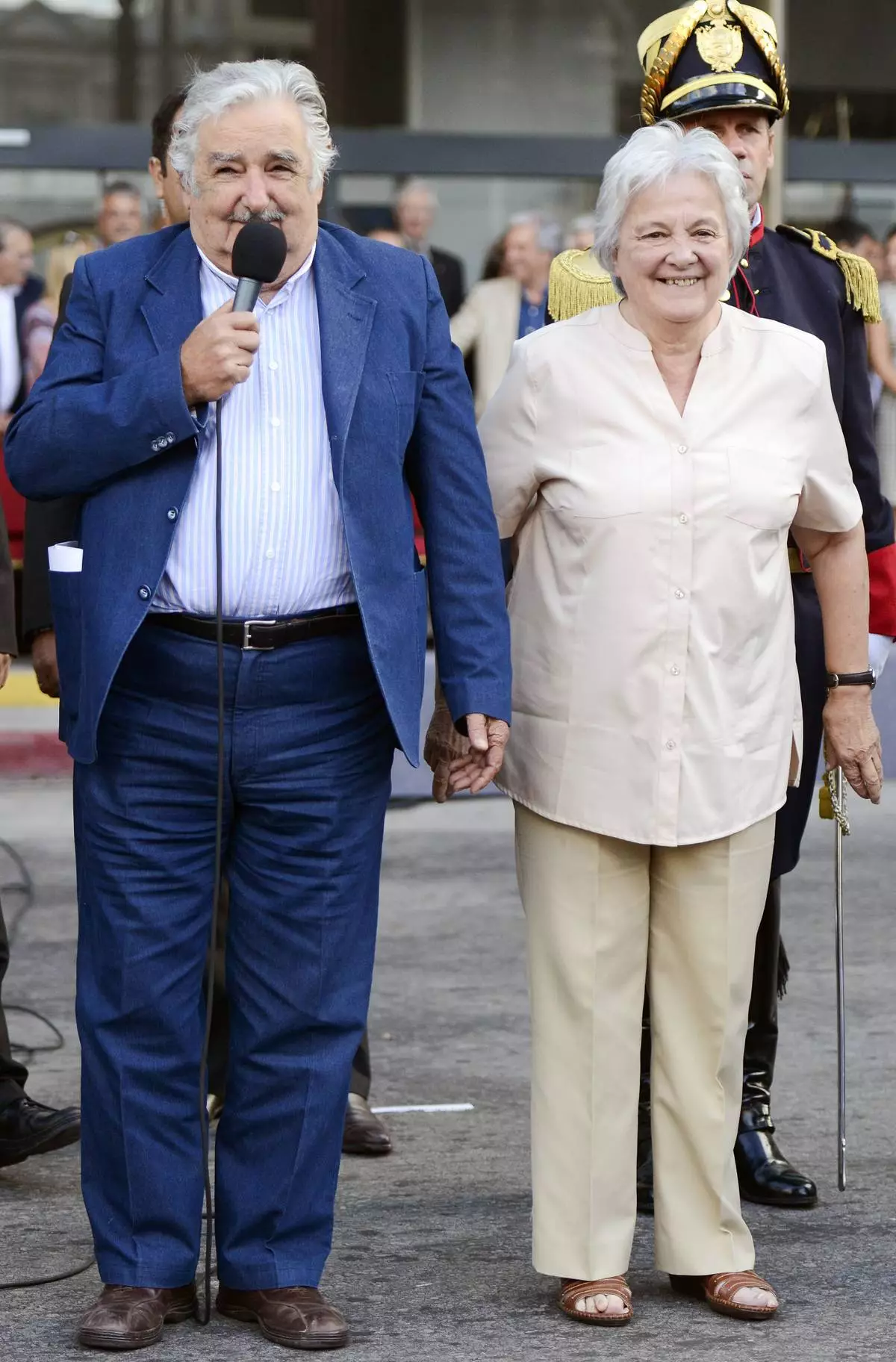
FILE - Uruguay's President Jose Mujica, left, and his wife Lucia Topolansky attend a flag ceremony in Montevideo, Uruguay, Feb. 27, 2015. (AP Photo/Matilde Campodonico, File)
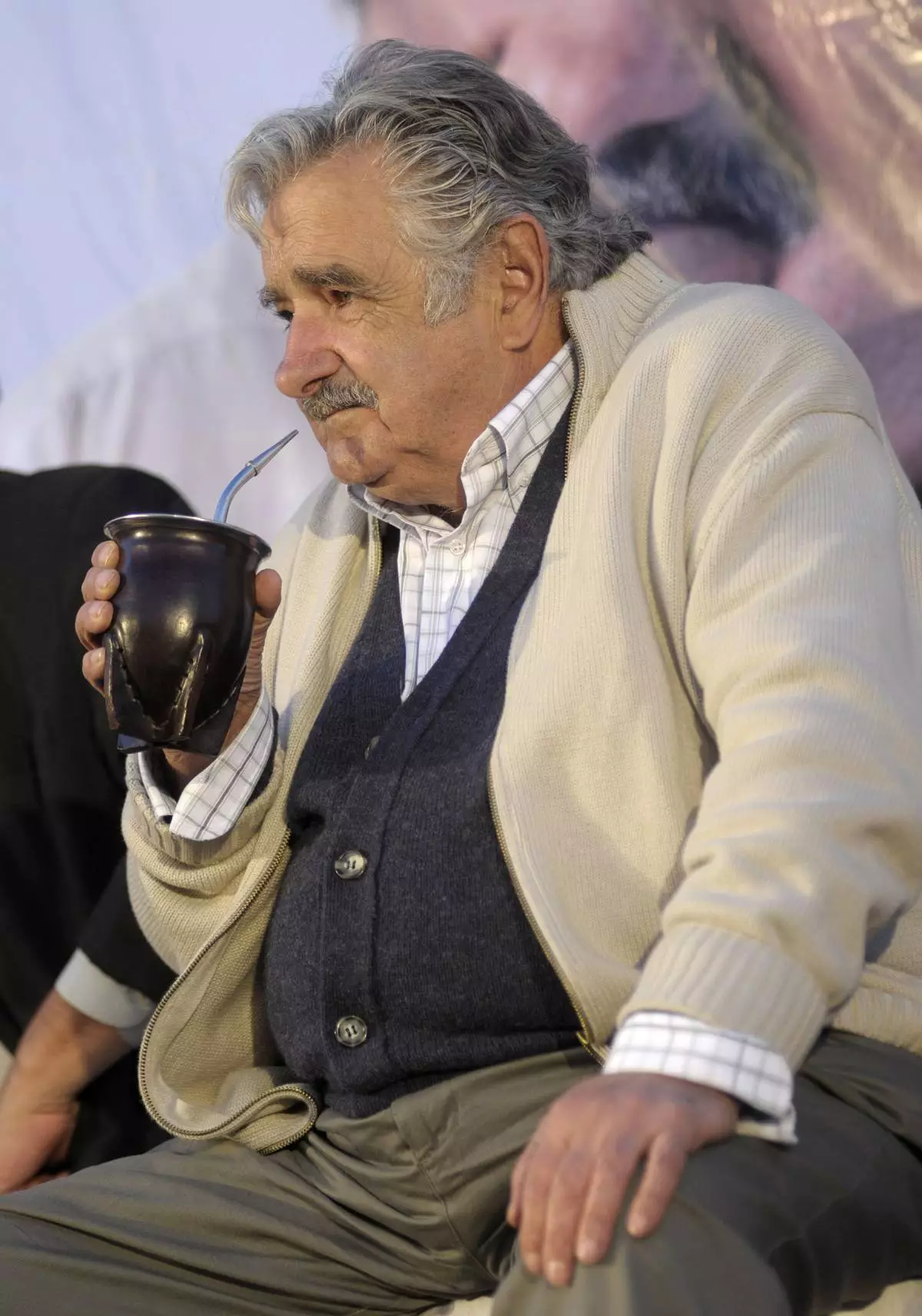
FILE - Presidential candidate Jose Mujica drinks mate during a closing campaign rally in Pando, Uruguay, Oct. 22, 2009. (AP Photo/Matilde Campodonico, File)

FILE - Jose "Pepe" Mujica, 74, presidential hopeful for the governing Broad Front leftist coalition, stands in a tractor on his flower farm after voting in Uruguay's general elections, on the outskirts of Montevideo, Oct. 25, 2009. (AP Photo/Matilde Campodonico, File)
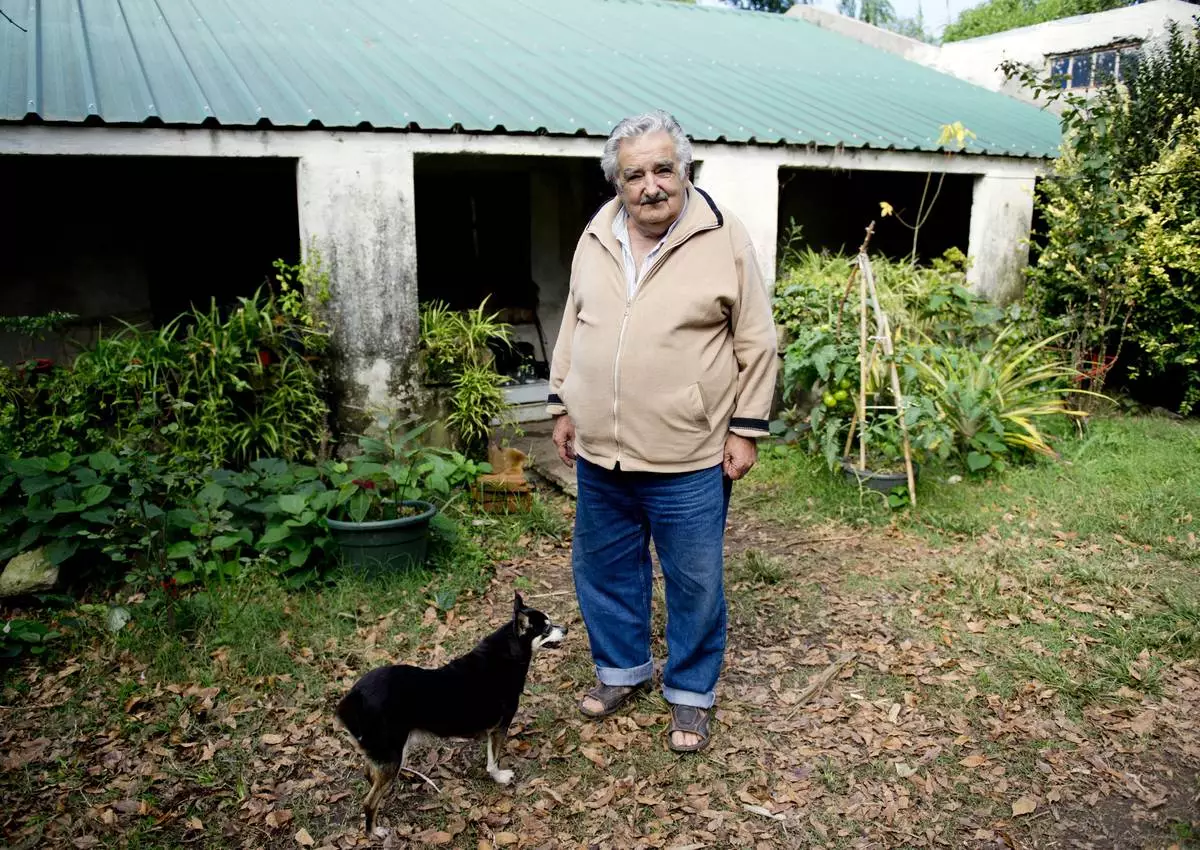
FILE - Uruguay's President Jose Mujica poses for a photo with his dog, Manuela, at his home on the outskirts of Montevideo, Uruguay, May 2, 2014. (AP Photo/Matilde Campodonico, File)
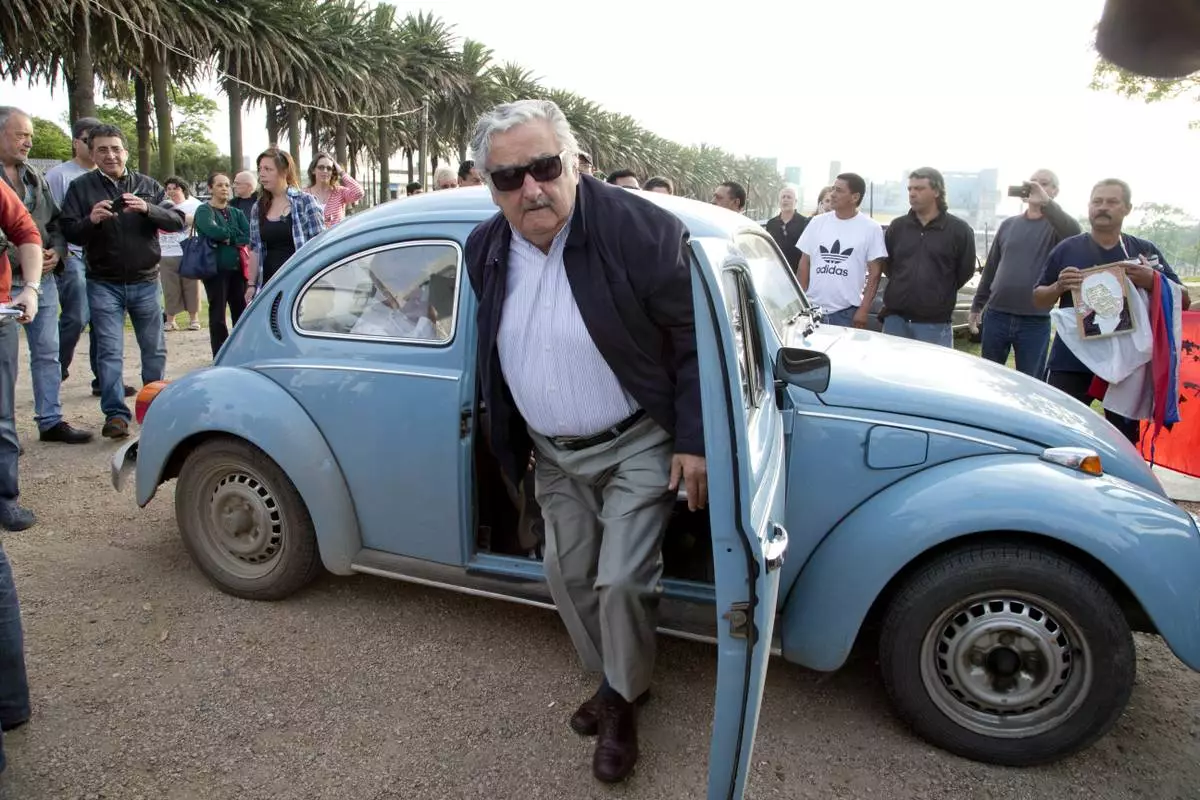
FILE - TO HOLD - Uruguay's former President Jose Mujica arrives to cast his vote in Montevideo, Uruguay, Oct. 26, 2014. (AP Photo/Natacha Pisarenko, File)



